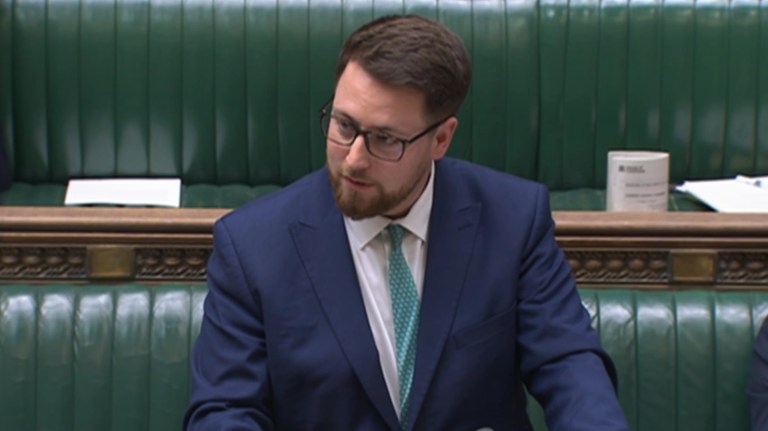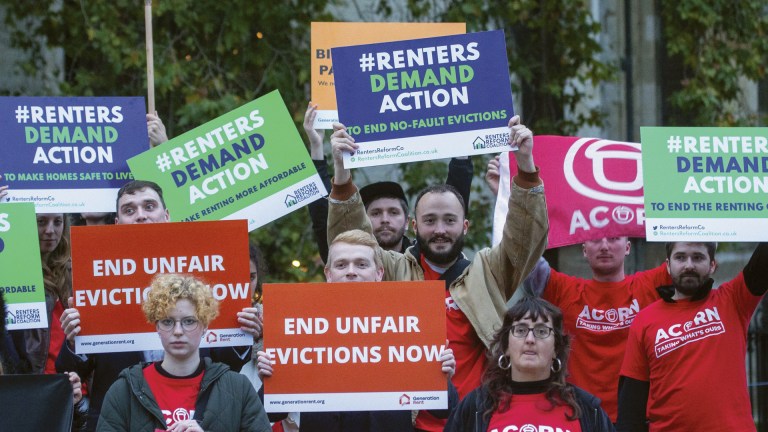Most recently, the government tried to use an amendment to its Levelling Up Bill to ditch an EU rule requiring builders to offset river pollution from their developments. Labour peers joined the Greens in voting to defeat that move in the House of Lords, but Keir Starmer has a planning ‘reform’ agenda of his own that could have even more far-reaching consequences. In a speech in May, he said Labour would be “builders not blockers” and would make the “tough choice” to allow development on green belts to achieve a target of building 300,000 homes a year.
It seems Labour policy is now heavily influenced by the anti-planning lobby group, Centre for Cities, which published a report in February claiming that the 1947 Town and Country Planning Act is primarily to blame for restricting land for development and thus for Britain’s “four million missing homes” – without mentioning that the major housebuilders are already sitting on 11 years’ supply.
Calling for the present planning system to be replaced by US-style zoning to give developers more “certainty”, on page 53 of its report it reveals that this would mean allowing them to build 1.8 to 2.1m houses “around train stations in the green belt for suburban living”.
This was Centre for Cities’ goal as it lobbied delegates to this year’s party conferences, and the north of England metro mayors who spoke at its events should be wary. The green belt being talked about here is the one around London. On past performance, housebuilders will happily snaffle up prime sites in the most lucrative locations and leave less profitable sites in their land banks.
There is no guarantee that urbanising green belt will generate any overall increase in completions, and it would almost certainly lead to an even greater concentration of development in the south-east. Meanwhile, anyone living in inner-city London taking a train to go for a country walk would find that, on reaching a station in the former green belt, they would have to trek through miles of suburban sprawl before reaching open woods and fields.
So, what is the answer? Land banking could be controlled by limiting the number of plots a builder can hold to a multiple of its current annual output, with any excess being subject to compulsory purchase. Of the top eight, three – Barratt, Persimmon and Bellway – had a supply of six years or less in 2018. If a limit of six years’ supply was applied to all the builders now, they would have to either double annual completions or sell the surplus 424,390 plots to local authorities at cost. If six years’ supply was good enough for some of them before the latest land grab, why not impose it on all of them now?
Tackling land banking is, however, only part of the solution. Experience since Thatcher tells us that it is unrealistic to expect the private sector to deliver a 300,000-plus target, regardless of how much land they have or how benign the economic circumstances are. Even in 2007, the best of the last 30 years, the housebuilders could only provide 195,870 new homes – nowhere near enough to make up for local authority completions averaging only 1,763 annually throughout those years.
Speaking at this year’s Labour conference, Angela Rayner said the party will not let developers “wriggle out of their responsibilities” to build more ‘affordable’ housing. This may have sounded plausible to the uninitiated, but ever-increasing land banks give housebuilders the upper hand and show they will develop sites only when the profits are good. When questioned on council housing, Rayner refused to pledge any funding or to end Right To Buy.
In the 1970s, despite the economic difficulties and public spending restraints, councils built an average of 134,231 homes annually. If that had happened over the last 30 years, the four million missing homes would now not only have been built but would be earning rent to pay for building more.
Thatcher’s reforms were an epic act of self-harm, continued inexplicably by all her successors. We can’t undo the damage at a stroke, but it would be ludicrous to compound the mistake by persisting in relying on the private sector. If Starmer wants to be a builder not a blocker, he should tackle the real blockers who hoard land and empower local authorities to get on with building desperately needed homes.
Steve Howell is a journalist, political commentator and author of three books, including Game Changer, an insider’s account of Labour’s 2017 general election campaign
This article is taken from The Big Issue magazine, which exists to give homeless, long-term unemployed and marginalised people the opportunity to earn an income. To support our work buy a copy!
If you cannot reach your local vendor, you can still click HERE to subscribe to The Big Issue today. Or give a gift subscription to a friend or family member. You can also purchase one-off issues from The Big Issue Shop or The Big Issue app, available now from the App Store or Google Play









